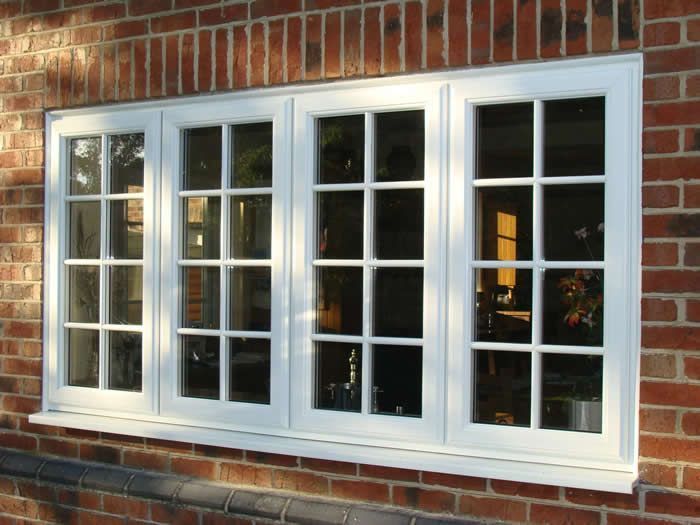When it comes to selecting windows for your home, the material you choose plays a significant role in factors like durability, insulation, and maintenance. In this blog, we’ll explore the key differences between UPVC (Unplasticised Polyvinyl Chloride) windows, aluminum windows, and wooden windows to help you make an informed decision for your home.
1. Material Composition and Strength
- UPVC Windows: Made from a strong plastic material, UPVC windows are known for their durability and resistance to various elements. They are lighter than aluminum and wooden windows, making them easier to install and maintain.
- Aluminum Windows: These windows are made from a combination of aluminum and other materials like magnesium. Aluminum is a very strong material, which is why it’s commonly used for large commercial buildings and offices. Aluminum windows are ideal for locations that experience extreme weather conditions, as they are robust and resistant to corrosion.
- Wooden Windows: Wooden windows have a classic aesthetic but require regular maintenance. They are susceptible to wear and tear from the elements, especially water, which can lead to warping and rotting. However, they offer great aesthetic appeal and are often used for their traditional charm.
2. Weather Resistance
- UPVC Windows: These windows are highly resistant to weather conditions, including heat, rain, and UV rays. Once installed, they do not expand or contract with temperature changes, maintaining their shape and functionality.
- Aluminum Windows: While aluminum windows are resistant to rain and heat, they are more prone to expanding and contracting with changes in temperature. This can cause minor shifts and issues with operation.
- Wooden Windows: Wooden windows are most affected by extreme temperatures, especially humidity, which can cause them to expand, contract, or even warp. To prevent this, they need to be regularly treated with special coatings to protect against moisture and insects.
3. Insulation Properties
- UPVC Windows: Known for their excellent insulation properties, UPVC windows help in keeping the temperature stable inside your home. They prevent heat from escaping in winter and block out external heat in the summer, which can help reduce energy costs.
- Aluminum Windows: While aluminum windows provide some insulation, they are less effective compared to UPVC windows. The metal conducts heat, meaning that during cold weather, it can make the room colder and during hot weather, it can let the heat in.
- Wooden Windows: Wooden windows provide a moderate level of insulation, but they are not as efficient as UPVC windows. They may require additional insulating materials to improve energy efficiency.
4. Termite Resistance and Durability
- UPVC Windows: These windows are immune to termite attacks, making them a low-maintenance option. They are also not prone to warping or cracking under normal weather conditions, which makes them more durable in the long run.
- Aluminum Windows: Aluminum windows are also resistant to termites and pests. They are highly durable and resistant to corrosion, especially when treated with a special coating.
- Wooden Windows: Wooden windows are susceptible to termite infestation unless properly treated with chemicals. Regular treatment and maintenance are required to ensure that they remain durable and free from pests.
5. Maintenance
- UPVC Windows: One of the key benefits of UPVC windows is their low maintenance. They are easy to clean and do not require frequent repainting or special treatment.
- Aluminum Windows: Aluminum windows require less maintenance than wooden windows, but over time, they may need re-coating to prevent corrosion.
- Wooden Windows: Wooden windows require the most maintenance. They need to be sanded, painted, and treated regularly to prevent damage from weather and pests.
6. Cost-Effectiveness
- UPVC Windows: UPVC windows tend to be more cost-effective than aluminum and wooden windows. While they offer great value for money in terms of durability, insulation, and maintenance, their initial installation cost is generally lower.
- Aluminum Windows: Aluminum windows are often more expensive than UPVC windows, especially if they are of higher quality or have custom finishes. However, they are highly durable and last longer.
- Wooden Windows: Wooden windows are often the most expensive option, both in terms of initial cost and ongoing maintenance. However, they provide a unique aesthetic appeal that may justify the cost for certain projects.
7. Soundproofing
- UPVC Windows: UPVC windows offer excellent soundproofing properties, which can help reduce outside noise significantly.
- Aluminum Windows: Aluminum windows tend to allow more noise through compared to UPVC. However, with the right glazing, aluminum windows can offer better soundproofing than wooden windows.
- Wooden Windows: Wooden windows provide moderate soundproofing, but they are less effective than UPVC windows in blocking noise.
8. Environmental Impact
- UPVC Windows: UPVC is considered environmentally friendly as it can be recycled easily. However, it requires less energy to produce compared to aluminum and is often preferred for its sustainability.
- Aluminum Windows: Aluminum is also recyclable, making it an eco-friendly option. However, the production of aluminum requires more energy compared to UPVC.
- Wooden Windows: Wooden windows are made from natural resources, but their environmental impact depends on the source of the wood. Sustainable forestry practices should be followed to ensure they are eco-friendly.
Conclusion
When choosing between UPVC, aluminum, and wooden windows, consider the specific needs of your home. UPVC windows offer the best all-around performance in terms of durability, insulation, and low maintenance. Aluminum windows are ideal for areas with extreme weather, while wooden windows are perfect for those who prefer a traditional, classic look but are willing to invest time and effort into maintenance.
If you’re looking for a cost-effective, energy-efficient, and durable solution, UPVC windows are a great choice for most homes.

